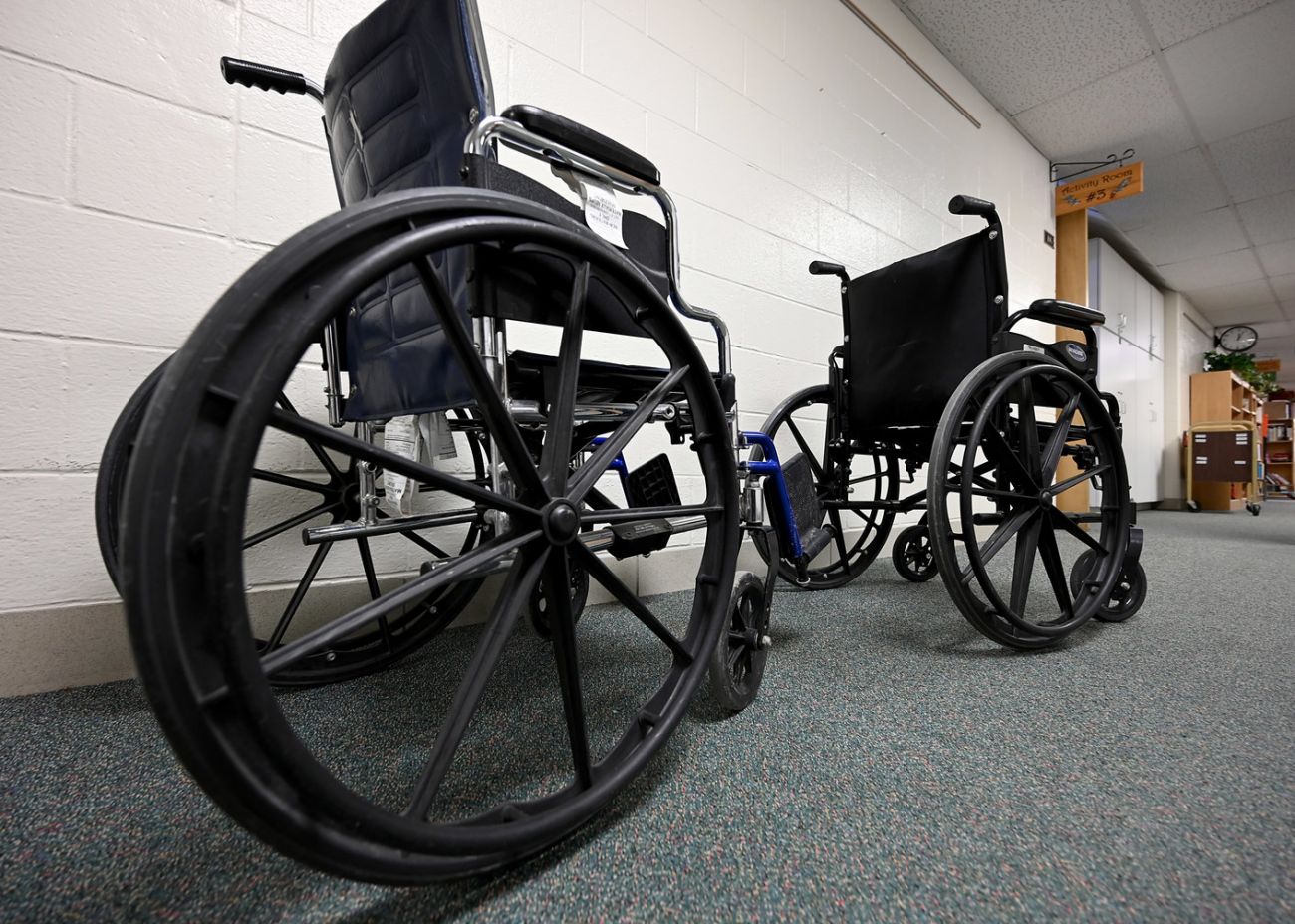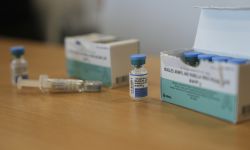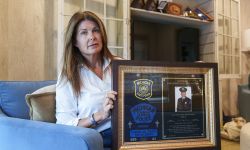Coronavirus, an ‘almost perfect killing machine,’ hits Michigan nursing homes

Michigan’s nursing homes and senior living communities are losing ground in their uphill battle against COVID-19.
At least 15 confirmed cases of COVID-19 have been detected at the Beaumont Commons in Farmington Hills, Beaumont Health spokesman Mark Geary told Bridge. Advantage Living Center in Roseville on Friday acknowledged multiple suspected cases. At least one case has been reported at Heartland Health Center in Livonia, and on March 17, the All Seasons senior facility in West Bloomfield said a second resident had tested positive.
As of last week, at least 147 nursing homes across 27 states had at least one resident with COVID-19, according to the U.S. Centers for Medicare and Medicaid Services.
- The latest: Michigan coronavirus map, locations, updated COVID-19 news
- What Michigan’s coronavirus stay-at-home order means for residents
- What jobs are exempt from Michigan coronavirus lockdown? You may be surprised.
“Although 147 is a small fraction of the over 15,000 nursing homes across the country, given the disproportionate effect on our nation’s older population, this is a cause for concern,” according to a CMS statement.
That means it’s a matter of time before other COVD-19 makes it inside other Michigan homes, said Brian Pangle, CEO of the Clark Retirement Community in Grand Rapids, which offers assisted and independent living, memory and dementia care, skilled nursing and respite care.
The community was featured in Bridge earlier this month after it and other nursing homes began banning visitors — measures that Gov. Gretchen Whitmer’s strengthened by executive order March 13 restricting visitation at care facilities.
“There’s a greater chance we will see it” than not, Pangle said.
With little protection, plastic bags.
Nursing homes across the state and nation, dozens if not hundreds of people live together, many separated by a roommate by a single curtain.
Personal care is intimate. Residents may wander.
Aged bodies and chronic disease makes COVID-19 an “almost perfect killing machine” of the elderly, Mark Parkinson, president and CEO of the American Health Care Association, which represents about 13,500 nursing facilities and other long-term care providers, told CNN this month.
Communal meals and other gatherings may be suspended under guidance by the U.S. Centers for Disease Control and Prevention, but there remains a daily stream of personal care, medical, housekeeping and dietary staff moving from room to room.
And in the nation’s nursing homes, infection control is poor.
An analysis by USA Today this month found that 75 percent of the nation’s nursing homes have been cited for some infection control violation, ranging from paperwork problems to “nursing home not telling state officials about an outbreak as unmonitored workers spread disease to patients,” according to the report.
A 2013 report by the U.S. Centers for Disease Control and Prevention suggested that nursing home infections may lead to as many as 380,000 deaths a year.
Making matters worse is that the well-documented short supply of personal protective equipment at hospitals that is even more acute at nursing homes, Pangle said.
Hospitals are prioritized for shipments, Pangle said.
He said Clark Retirement Community is sorting through unfamiliar overseas suppliers to find quality masks that Clark’s regular suppliers can no longer keep in stock.
There’s no sugar-coating it: “We know we don’t have enough,” he said.
On Thursday, Advantage in Roseville in Macomb County pleaded on its Facebook page for supplies from the community including gowns, masks and gloves from “dentists, tattoo artists/parlors, doctors offices … elective surgery centers, construction workers.”
“We have several buildings that are almost completely out and we are caring for some people with positive or suspected COVID,” the message read.
Despite pleas to local health officials and community organizations, supplies of PPE have been “minimal,” according to a blog post by Advantage. The company had gone so far as to purchase plastic bags from Costco for staff to wear.
On Monday, in a five-minute video message to staff, a woman identified as co-owner Kelsey Hastings acknowledged the shortage of equipment and anxiety among staff.
She asked staff to keep their courage and faith.
“This is completely uncharted for all of us,” she said.
Kenya Blackburn, a long-time certified nurse assistant, calls the pandemic “overwhelming.”
At Livonia’s Heartland, Blackburn said the man who tested positive for COVID-19 had walked through the center in the days before he went to the hospital. (Symptoms of COVID-19 may take several days to appear, according to the CDC.)
He’d smoked outside with others and met in the dining hall, she said.
Heartland declined a Bridge request for details of the case, including the date of the testing. The nursing home alerted both employees and families about the case, and “we feel we have very intense protocols in place including an isolation unit,” spokeswoman Kelly Kessler said in a statement.
Kessler said the home began taking temperatures of staff at each shift, which Blackburn confirmed.
Blackburn said she loves working with residents and prays that she doesn’t unknowingly carry the virus into the nursing home or back to her home, where she lives with her two sons and 1-year-old granddaughter. She also visits with her elderly mother, and out-of-town relatives visited recently.
“It’s very overwhelming for my whole family,” she said.
‘A living nightmare’
The outbreak of COVID-19 at a Washington state nursing home first underscored the vulnerability to the virus of people living and working together in shared spaces.
Testing confirmed the first case at the Life Care Center in Kirkland, Washington, on Feb. 28 . By then, the 73-year-old resident had already been symptomatic for nine days, including the three days when she had been hospitalized. For several of those days, CDC guidelines made her ineligible for testing because she’d had no known contact with anyone else infected with COVID-19, according to a review of the cases published Friday in the New England Journal of Medicine.
By early March, the virus began burning through the facility, infecting at least 167 people, including 101 nursing home residents, 50 health care personnel and 16 visitors. Three other facilities also were involved, having clear epidemiological links to Life Care. Two of them employed staff that also worked at Life Care; the third had accepted two residents from Life Center.
According to the study and to news reports, 37 residents of Life Care, including the 73-year-old woman who was the first to be diagnosed with COVID-19, died.
Low-paid workers
Elder care advocates, nursing home managers and front line workers watched the Washington outbreak in horror.
“It was a living nightmare,” said Emily Dieppa who works with long-term care facilities as a consultant with PHI, an advocacy group for home health workers.
She said nursing homes are particularly susceptible because they rely on low-paid workers who often feel they have no choice but to work.
Nationally, direct care workers — personal care aides, home health aides, and certified nursing assistants — make about $12.27 per hour. In Michigan, certified nursing assistants made an average of $14.28 an hour in 2018, Deippa said.
Most low-wage workers don’t have a freezer stocked full of food, deep savings accounts or robust sick pay or family leave benefits, Dieppa said.
“They are making very hard choices that very often don’t prioritize their own health and well-being,” she said. “A lot of times they work sick and they work when their family members are sick because they have bills to pay.”
Even if they aren’t sick, frontline staff have families and “have to live in the world,” said Sarah Slocum, co-director of the Program to Improve Eldercare at Altarum, an Ann Arbor-based research firm focused on public health.
“Just like in a hospital setting, they're either bringing germs in and carrying germs out,” she said.
Isolated residents
In this new world of social distancing, nursing homes are fighting on two fronts — against isolation as much as infection, Slocum said: “It’s a hard balance.”
Already, residents have lost their homes, spouses, pets, plants, familiar furniture and simple comforts like “making tea in the teapot that they inherited from their mother,” said Slocum. “You can’t just wander into the kitchen and get a snack.”
To help residents stay connected, Clark, the Heartland chain, and others have purchased tablets for residents for Skype and FaceTime visits with families.
Clark has taken the unprecedented step of allowing some staff to bring in pets, and Clark residents also can choose to watch live streamed chapel services and Bible studies on their TVs.
At other facilities, there’s call light Bingo, in which staff call out Bingo spots down the hallways or live stream the numbers onto resident TVs and residents hit their call lights to call “Bingo.”
But change, especially when it shifts to silence and isolation, can be agitating for anyone — even more so for a dementia patient, especially if daily human contact gets reduced to eyes over a face mark.
So what will it take to get through to the other side of the pandemic?
Pangle paused before answering. Personal protective equipment and a commitment to constant disinfection, he said. Creativity, too, to keep residents engaged.
But there’s something else.
“I don’t want to sound corny or trite, but we also need the courage and the fortitude to work through it,” he said.
RESOURCES:
- Michigan families can get food, cash, internet during coronavirus crisis
- How to give blood in Michigan during the coronavirus crisis
- Michigan coronavirus Q&A: Reader questions answered
- How to apply for unemployment benefits in Michigan amid coronavirus crisis
- How to get tested for coronavirus in Michigan
- The first line of defense against coronavirus: Try soap, not a mask
See what new members are saying about why they donated to Bridge Michigan:
- “In order for this information to be accurate and unbiased it must be underwritten by its readers, not by special interests.” - Larry S.
- “Not many other media sources report on the topics Bridge does.” - Susan B.
- “Your journalism is outstanding and rare these days.” - Mark S.
If you want to ensure the future of nonpartisan, nonprofit Michigan journalism, please become a member today. You, too, will be asked why you donated and maybe we'll feature your quote next time!








